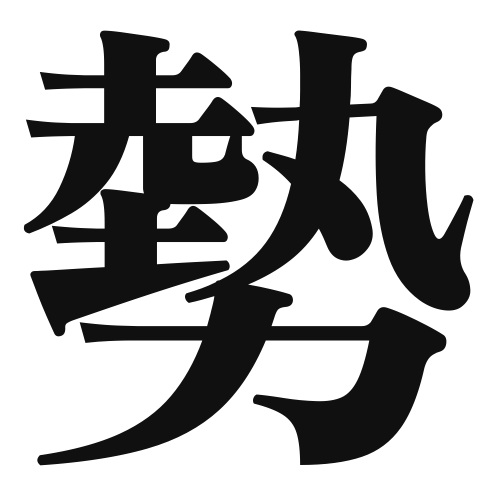1. Overview of Meaning
The kanji “勢” (sei) generally means “force,” “power,” or “energy.” It conveys a sense of strength or momentum, often used to describe the dynamic nature of actions or situations.
2. Formation and Radical
Formation of the Kanji: The kanji “勢” is a compound character (会意文字) that combines elements to convey its meaning. It consists of the radical “力” (power) and the character “才,” which adds a sense of capability or talent.
Radical: The radical of “勢” is “力,” which signifies strength or power.
3. Examples of Usage
Common Words and Phrases: Some frequently used words that include “勢” are:
- 勢い (いきおい, ikioi) – momentum, force
- 勢力 (せいりょく, seiryoku) – influence, power
Example Sentences in Daily Conversation:
- 彼は勢いよく走り出した。 (かれは いきおいよく はしりだした。) – He started running with great momentum.
- その会社は市場での勢力を拡大している。 (その かいしゃは しじょうでの せいりょくを かくだいしている。) – That company is expanding its influence in the market.
4. Synonyms and Antonyms
Similar Kanji: A similar kanji is “力” (ちから, chikara), which also means “power” but is more focused on physical strength rather than the dynamic aspect of “勢.”
Antonyms: An antonym of “勢” could be “弱” (じゃく, jaku), meaning “weak” or “feeble,” which conveys the opposite of strength and power.
5. Cultural and Historical Background
Relation to Japanese Culture: The concept of “勢” is significant in various aspects of Japanese culture, including martial arts, where the idea of force and momentum is crucial for effective techniques.
Proverbs and Idioms: One common saying is “勢い余って” (いきおいあまって, ikioi amatte), which means “to act impulsively due to strong momentum,” highlighting the importance of controlling one’s energy and actions.
